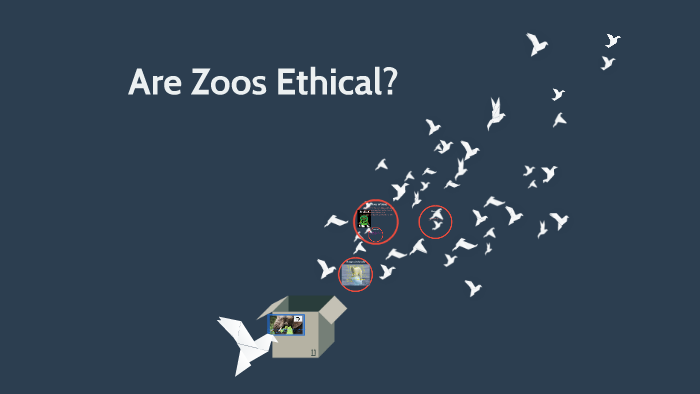
Supporting ethical zoos is more than just a choice; it’s a commitment to animal welfare and conservation. Ethical zoos prioritize the well-being of their inhabitants and contribute to vital conservation efforts globally. The mission of a truly ethical zoo extends beyond simple entertainment, encompassing education, conservation breeding programs, and a deep respect for the animals in their care. This article explores the critical facets of supporting ethical zoos, outlining the key elements of animal welfare, the importance of responsible tourism, and practical steps you can take to make informed choices when supporting these institutions.
Understanding the Importance of Ethical Zoos
Defining Ethical Zoos
Ethical zoos prioritize the physical and mental well-being of their animals. Beyond providing suitable habitats, they actively engage in conservation efforts, striving to protect endangered species and support breeding programs. They also promote education and foster a deeper understanding of the natural world. By adhering to these principles, ethical zoos act as crucial elements in the global conversation surrounding animal welfare. They are committed to providing a positive experience that transcends simple entertainment.
determineing the Need for Change
Unfortunately, not all zoos adhere to these ethical standards. Many zoos operate under queryable conditions, lacking the resources and commitment to truly support their animals. This lack of ethical treatment can lead to suboptimal living conditions, impacting the animals’ well-being and preventing achievementful conservation efforts. In many cases, inadequate animal enclosures compromise the animals’ natural behaviors and limit opportunities for natural expression.
Evaluating Zoo Practices and Policies
Related Post : Weather Woes, Ruined Zoo Trips: Rain and Extreme Heat.
Assessing Enclosure Size and Design
A key facet of evaluating the ethical practices of a zoo is examining the size and design of the animal enclosures. Adequate space is vital for animals to exhibit their natural behaviors and reduce stress. This often involves large, naturalistic enclosures that replicate, as closely as possible, their natural habitats. Consider zoos that prioritize spaciousness and offer enriched environments that reduce boredom and encourage natural behaviors. Enclosures must also offer adequate access to fresh air, natural light, and safe spaces to rest or engage in activities. Zoos that limit or restrict animals to small areas raise significant ethical concerns.
Examining Conservation Breeding Programs
Another vital facet of ethical zoos is their active involvement in conservation breeding programs. These programs are essential for maintaining genetic diversity and increasing the survival chances of endangered species. Zoos involved in these initiatives typically work closely with experts and studyers and play a vital function in preserving valuable genetic lines. Consider zoos that clearly outline their conservation efforts and offer concrete examples of achievementful breeding programs that contribute to global conservation.
Responsible Tourism and Community Engagement
Promoting Respectful Interactions
Supporting ethical zoos also involves promoting respectful interactions between visitors and animals. Zoos should implement visitor instructions that promote a low-stress environment for the animals. Encouraging respectful and responsible interactions between humans and animals is essential. Zoos with clear visitor instructions and actively promoting positive interactions contribute significantly to the well-being of their animals. In some cases, direct visitor contact with animals is minimized or prohibited to ensure the animals are not negatively affected. Zoos should proactively emphasize the importance of respecting the animals’ space and minimizing potential stressors.
Fostering Education and Conservation
Ethical zoos are committed to providing educational opportunities for visitors and fostering a deeper understanding of animal welfare and conservation issues. Zoos often implement educational programs and interactive exhibits designed to inform and engage visitors. A strong educational focus is a key element of ethical zoos, encouraging broader awareness and fostering respect for all living things. By actively engaging in and promoting education, zoos create positive changes in society.
Making Informed Choices
Evaluating Zoo Accreditation and Standards
When choosing a zoo to support, evaluate the zoo’s accreditation status and adherence to recognized ethical standards. Organizations like the Association of Zoos and Aquariums (AZA) and the World Association of Zoos and Aquariums (WAZA) often set standards for animal welfare and conservation. By considering zoos with these accreditations, you’re actively supporting institutions committed to high standards.
Supporting Reputable Organizations
Look for zoos that actively support conservation through donations to related organizations or programs. Investigate the zoo’s financial transparency and how funds are allocated towards animal care, conservation efforts, or other worthwhile initiatives. Many zoos partner with conservation organizations or study institutions. By supporting institutions with transparent financial policies, you contribute to supporting their efforts.
Conclusion
Reiteration of Ethical Principles
Supporting ethical zoos is a vital step towards ensuring the well-being of animals and promoting biodiversity. These zoos embody respect for animal life, embracing conservation, and providing a positive learning experience for visitors. Ethical zoos recognize the importance of environmental education and play a crucial function in protecting the planet.
Urge for Action
We can all make a significant difference by actively supporting ethical zoos. By making informed choices, we contribute to creating a more sustainable world for future generations. Your support plays a pivotal function in shaping the future of animal conservation.
Next Steps
study accredited zoos near you. Read their annual reports and visit their websites to learn more about their animal care and conservation efforts. Share your findings with friends and family to spread awareness and inspire others to support ethical practices. You can directly contact the zoo or conservation organizations to support their work.
Supporting ethical zoos is crucial for the well-being of animals and the preservation of biodiversity. By making informed choices, supporting reputable organizations, and advocating for ethical practices, we can contribute to a future where animals are treated with respect and compassion. Remember, your actions matter; every purchase and decision, big or small, can make a significant impact. Visit the websites of organizations like the World Zoo Conservation plan or the Association of Zoos and Aquariums for more resources and information on how you can further support ethical zoos. Contact your local zoo or wildlife conservation organization to discover ways you can support their mission.